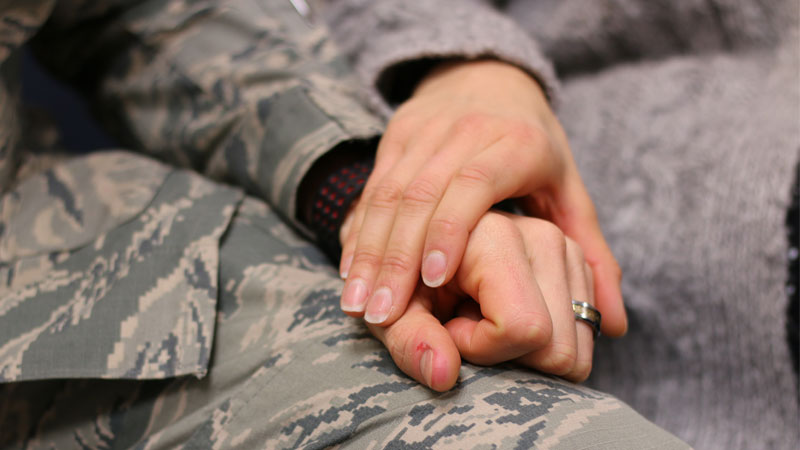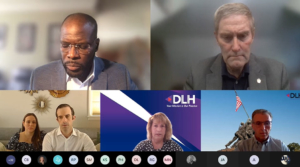Experts Come Together for Third Annual DLH TBI/PTSD Consortium Conference

DLH leaders were joined by researchers, educators, clinicians, business managers, and former government and military officials from throughout the country on Thursday, June 17 for the company’s third annual Traumatic Brain Injury (“TBI”) and Post Traumatic Stress Disorder (“PTSD”) Consortium conference. Held virtually, the meeting fostered collaboration between DLH and its partners in the health industry, academia, and Defense and Veteran commercial organizations as an important step in expanding TBI/PTSD research, education, and treatment programs.
DLH Executive Vice President John Armstrong, LFACHE (USA, COL, RET) and Program Executive John Lamberton, MPA Captain, U.S. Navy (Ret) opened the meeting. “Over the past 20 years, almost 450,000 Service Members have been diagnosed with first time TBI,” said Armstrong. “Our target today is to collect from your groundbreaking TBI and PTSD care of delivery, outcomes, and tools found in your healthcare organizations, through subject matter experts with the right experience to fill the gaps and find recommendations on how we can make an impact.”
Matt Nathan, MD, FACP, FACHE; Vice Admiral, U.S. Navy (Ret), the 37th Navy Surgeon General, served as Keynote Speaker at the conference. His presentation, titled “Help and Hope for TBI…a Team Sport” discussed how multi-disciplinary collaboration is vital to improving treatment outcomes, costs, and readiness.
 Attendees also heard from John and Brooke Palmer. John is a former US Army Captain who was injured in an IED blast and diagnosed with a TBI while deployed to Afghanistan in 2011. He spoke of the successes and challenges he’s faced during his treatment, including the struggle to find continuity in care. His wife Brooke spoke passionately on the frustrations care givers and family members can experience as they seek the best care for loved one’s who are struggling. Through John’s treatment successes and challenges, Brooke came to realize TBI and PTSD are truly individual injuries requiring different health care approaches for each person and family.
Attendees also heard from John and Brooke Palmer. John is a former US Army Captain who was injured in an IED blast and diagnosed with a TBI while deployed to Afghanistan in 2011. He spoke of the successes and challenges he’s faced during his treatment, including the struggle to find continuity in care. His wife Brooke spoke passionately on the frustrations care givers and family members can experience as they seek the best care for loved one’s who are struggling. Through John’s treatment successes and challenges, Brooke came to realize TBI and PTSD are truly individual injuries requiring different health care approaches for each person and family.
Later in the conference, participants split into breakout discussions focused on four key areas: Research, Clinical Affairs, Education, and Business Operations. Following the breakout conversations, attendees returned to the main meeting to summarize their findings. The group ended with a commitment to meet again to advance research, therapies, and treatment for the TBI/PTSD Community.




